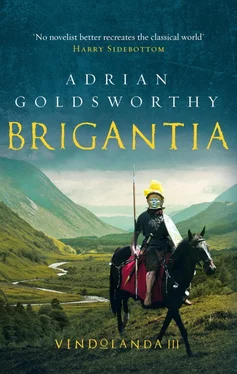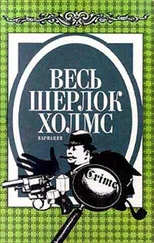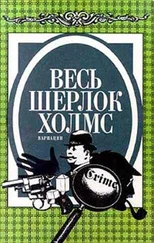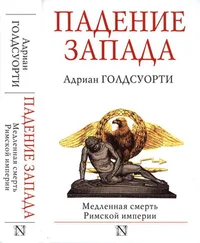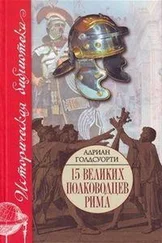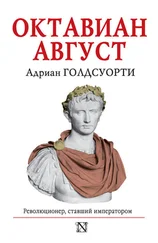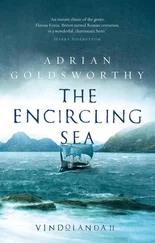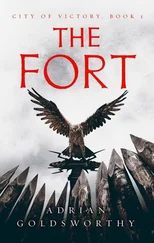‘The beginning,’ he gasped, and died.
CRASSUS’ HORSE FLINCHED as its rider slapped its neck repeatedly. The legate of VIIII Hispana did not appear aware of what he was doing and just as unconsciously shifted in his seat and calmed the animal. Like his sister, Crassus was a fine horseman. Yet there the similarities ended, for it was hard to imagine her face so alight with sheer joy of destruction as he watched the villa’s roof collapse and send up a great gout of smoke and dust. Ferox sensed that the legate was not really listening to his report.
It was the second day after the Ides of November, and the villa belonged to a Brigantian nobleman believed to have joined Arviragus in rebellion. Ferox was not sure whether this was true, and it was clear no one at the farm had resisted. Two men had still died because they had held farm tools in a threatening way – at least, that was according to the cavalrymen who had first reached this place. The remaining score or so of workers, men, women and children, sat and watched as their home burned and took most of their few possessions with them. No one seemed interested in what they had to say about their absent lord and his family.
‘You appear to have dawdled, centurion.’ Crassus did not bother to look down. More of the roof fell in and a wave of heat washed over them, reminding Ferox of the bonfire on Mona, and the druid praying, knife held aloft. That was fifteen days ago and the journey since then had not been easy. If Vindex and the others had not arrived just in time, then there would have been no journey at all. Before the prince had set out, Ferox had spoken quietly to the scout and the big German. He did not trust Arviragus or Crispinus – and was far from sure about the prince’s sister. So he asked them to wait until they were sure the boats were well away and then to overpower the Brigantes still with them. Once they were secure, leave as small a guard as possible for the prisoners and the horses, and lead the rest into the swamp. Gannascus’ homeland was a place of marshes and bogs, and he had trusted the warrior to find a path through to the island between the lakes. The German had managed it, prodding with a long pole, wading where he could, and even swimming where it was safe. It had taken many hours, doubling back on themselves half a dozen times, but in the end he had led them all through. Smeared with mud, they had arrived and saved them. At least, that was the simplest explanation. Ferox wondered whether Acco had guessed what he would try and had delayed to give help plenty of time to arrive.
Leaving Mona was harder than he had hoped. Following the same path, they had gone back to the camp to find the Brigantes gone, the two Batavians and the rest of the soldiers from Segontium dead, and the horses killed or driven off. Only two hours after dawn did they find one of the pack ponies cropping the grass a couple of miles away. A Batavian volunteered to swim the animal across the straits. No one was keen on staying longer on Mona than necessary, for the local warriors might be small, but they were bound to want vengeance for the slaughter of their chief and his men. Even so, the pony was small, its rider big, and the rest of the Batavians placed bets on whether both would drown as they watched him ride into the sea. The odds against them making it started out very good and soared when he fell into the water. Yet somehow he kept hold of the mane and clung to the animal, swimming beside it. Longinus scooped most of the bets as they saw the man and pony clamber up onto the far shore.
‘Don’t worry, boys. Forget about it,’ he told them.
Eventually boats came from the fort and took them off. A merchant ship had stopped at Segontium the day before, and then come and carried away the prince and his men. The liburnian based at the fort was away, and when it arrived late in the day the rowers needed rest. Thus it was not until the next morning that they set sail, a gusting westerly wind at least in their favour. Ferox stared at the beaches and cliffs as they passed Mona, still puzzled by Acco’s intentions. It was almost as if he had wanted to be killed and for them to escape.
When the wind shifted, the liburnian lowered sail and the rowers took over, heading steadily east, until a storm rolled in and they had to work their way out from the shore. The night was grim, but the optio in charge knew what he was doing and kept them safe until the weather cleared. Late on the next day he landed them on the coast. After that they walked to Bremetennacum, and found only the rump of the cavalry ala normally stationed there. The prefect was away, and a decurion in charge of the barely one hundred men present. Ferox’s rank impressed him less than Claudia Enica’s connections and charm, and eventually convinced him to loan them some of his horses.
The news he gave them was not good, adding to all the stories they had heard since landing. ‘Rumour, the swiftest of all evils’ as Claudia Enica called it, quoting the Aeneid again, had flown across the land. People said that Trajan was dead, although while some said that fever had taken him, others spoke of assassins’ knives. The decurion had heard nothing official, but said that a trader passing through had been sure that it was true. Neratius Marcellus remained crippled by his wound. Yet it was said that he had proclaimed himself princeps and that II Augusta had already declared its support and it was likely the other two legions would soon copy that. Arviragus was the only one to oppose him in public, declaring himself for the true emperor, who would be recognised by the Senate, and was rallying forces to fight if necessary.
In the farms, the Brigantes told everything in their own way. Arviragus was to be high king and lead his tribe and all their neighbours to victory. His sister and her consort had gone into the Otherworld to speak for him and rally all the souls of the dead to spread terror into his enemies. Who was emperor mattered little as men prepared for winter and its hardships. Glory for the tribe was good, plenty far better, and that was what he would bring after a struggle. In whispers men spoke of Acco, the last of the true druids, who had worked great magic at the most sacred lake on Mona. Paying with his own life, the old man had brought an end to one age like a season. Much would wither and die in the months to come, as so many things perished in winter, but spring would renew the world.
Rumour ran faster even than Ferox had expected, each story growing with every re-telling. They stayed in farms and more than once saw shields freshly painted, spears and even some swords cleaned and sharpened. He did not think their owners were sure why they did this.
‘They are frightened,’ Enica said. ‘Change is coming and strife with it. They remember past wrongs, whoever did them, and soon they would fight anyone who appeared.’ Their welcome was always greater once folk realised who she was. One or two of them even asked her about the Otherworld and what she had learned on her journey. ‘That my brother will die soon, and that I am to be queen,’ she told them, and Ferox wondered whether that story would take on a life of its own. Sometimes she introduced him as her consort, a prince of the Silures and friend of Rome, something all good Brigantes should be.
It was the only time she spoke of their marriage. At the start of the journey, any talk pained her, for her neck was swollen and tender, and she spent days in uncharacteristic silence. Later they were all so tired and never alone. Gannascus thought it hilarious. Vindex was amused, if a little envious. ‘It will be hard to show you respect. I mean, I know you too well,’ he said.
Rain and wind ensured their long rides were tests of endurance that left little energy for talk. At Verbeia they found fresh mounts and the news that the Brigantian royal guard had acclaimed Arviragus as king, that a few chieftains had already joined him with their followers. Some army detachments were said to be obeying him as well, so that already he had several thousand men under his command.
Читать дальше
